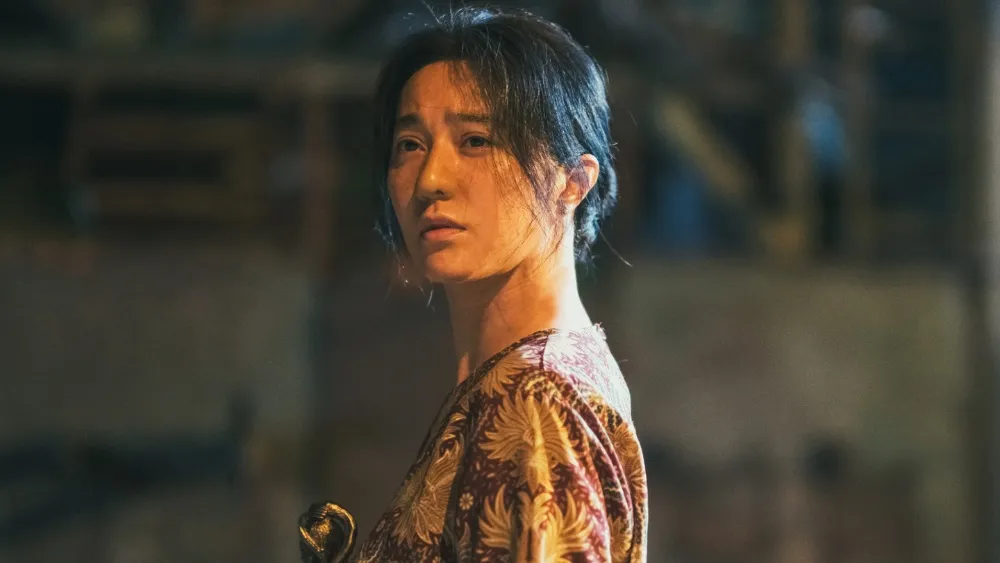Copyright variety

Fan Bingbing is so unrecognizable in “Mother Bhumi” that even her friends didn’t know it was her. For the Chinese superstar, that’s exactly the point. “Seeing this kind of feedback for the first time actually made me quite happy,” Fan tells Variety ahead of the film’s competition premiere at the Tokyo International Film Festival. “I hope audiences see not Fan Bingbing, but the woman fighting for the land and standing firm for her people — that I’ve fully immersed myself in the role.” Set in a late-1990s Malaysian rice-farming village, “Mother Bhumi,” directed by Chong Keat Aun, follows Hong Im, a widowed farmer and ritual healer who struggles to protect her family and community amid political unrest and land seizures. By day, she resists developers; by night, she heals and exorcises. As colonial-era conflicts resurface, strange events unfold: spirits return, black magic stirs, and the legacy of empire haunts the land, the living and the dead of Bujang Valley. The film represents a striking departure for Fan, who has built a career playing bold, outwardly powerful characters in everything from historical epics to intimate dramas. “Hong Im is different. Her strength is inward,” she explains. “She doesn’t shout or scream; instead, she fights through silent persistence and gentle protection. This quality of overcoming strength with gentleness is something I’ve rarely expressed before.” The transformation required months of intensive preparation that went far beyond typical script work. Fan watched documentaries about Malaysian villages daily, learned to work the fields like the characters, and studied blessing rituals alongside the villagers themselves. “I learned the local dialect by shadowing villagers — not just memorizing lines from the script, but mimicking the intonations of everyday conversations and the shouts during farmwork. I immersed myself in their traditional rituals, like the land blessing mentioned in the script. I studied every gesture and the meaning behind each prayer from the village elders, not merely acting out the motions but grasping the underlying belief in humanity’s symbiosis with the earth,” Fan says. The immersion extended to living the rhythms of village life. “During filming, I watched villagers head to the fields at sunrise and saw smoke rise from every household at sunset,” she recalls. “I etched these scenes into my heart, immersing myself fully. That way, when I acted, it felt grounded — not detached.” Most crucially, she says, was “emptying my mind. I imagined myself as someone who grew up in the village, feeling her dependence on the land and her panic at losing her home. The land’s influence on people is profound. Immersed in this atmosphere, I gradually became more and more like Hong Im —even my gaze carried the character’s obsession.” Hong Im navigates both tangible and spiritual realms, but Fan was determined to keep the character rooted in reality. “This character’s spirituality isn’t fantastical — it grows from the earth itself,” she says. “For instance, she foresees danger through nature’s shifts. These abilities must be grounded in genuine emotion.” “I’ll transform seemingly mystical elements into the character’s intuition: when she senses the land is about to be encroached upon, it’s not through supernatural powers, but through details like the growth of crops or the temperature of river water. This gives her spirituality a grounded foundation,” Fan adds. “In this way, realism and mysticism don’t clash — instead, they make the character more multidimensional. She is both an ordinary person rooted in the land and a guardian carrying its mission.” Working on the Malaysian-Italian co-production proved revelatory, offering Fan insight into different approaches to storytelling and performance. “What excites me most is the clash of creative visions,” she says. “The Malaysian team emphasizes emotional nuance — when filming villagers interacting, they’d encourage us to capture more unscripted moments like passing water or a gentle pat on the shoulder, describing these as the unspoken bonds within the village.” Meanwhile, she notes, “the Italian team excels at poetic cinematography, guiding me to convey a character’s inner turmoil through mere gazes. Even a single shot of someone staring at the earth could evoke a profound dialogue between humanity and the land.” The collaboration wasn’t about one side persuading the other, Fan explains, “but about jointly discovering the most fitting expression for the story. Take a scene blessing the land, for instance: we blended local ritual details with the romantic interplay of light and shadow seen in European cinema, resulting in a truly breathtaking effect.” After more than two decades in the industry and a global career that has taken her from Golden Horse Awards to the Berlin and Tokyo film festivals, Fan has developed clear criteria for selecting international work. “For me, the appeal of international projects has never been about the scale of production, but whether the role has soul,” she says. “Of course, first I look for universal emotions in the story — like in ‘Mother Bhumi,’ which is about protecting one’s homeland. Whether audiences are from Malaysia, China, or elsewhere, they can all feel that emotion. Next, I consider whether the character has room to grow, whether it allows me to explore sides of myself I haven’t shown before. If a project merely has an international label but the role is flat, I won’t take it.” Her artistic goals have crystallized with time, with her main mission being “to portray characters that resonate with audiences, regardless of the story’s national origin.” Playing Hong Im fundamentally shifted Fan’s relationship with nature. “Before, I felt the land might be distant from me, but after playing this role, I now instinctively connect with the ground beneath my feet,” she says. “Walking along a field ridge, I wonder how long it will take for the crops here to mature; seeing a downpour, I worry whether the plants in the fields might be flooded.” The film’s title — which literally translates to “Mother Earth” — took on deeper meaning through the process. “This role has taught me that the land isn’t a lifeless vessel — it’s a family member living in symbiosis with us. We depend on it for survival, and it needs our protection in return. Now, when I witness nature’s transformations, I feel a deeper sense of reverence than before and truly grasp the meaning of cherishing what we have.” When asked how she defines artistic growth after more than 20 years in the industry, Fan’s answer reveals an evolution in her approach to the craft. “My artistic growth has evolved from initially playing roles to now striving to become them,” she explains. “Before, I focused on how to portray a character well; now, I think about how to bring them to life — not through technique, but through empathy.” “What truly challenges me now are unfamiliar characters — those embodying lives I’ve never lived or emotions I’ve never felt,” she says. “A role like Hong Im, with its many uncharted uncertainties, excites me immensely. Each new character feels like unlocking a fresh door to a different world. This sense of novelty is what keeps me going.” The experience of playing Hong Im confirmed for Fan that “sometimes the power of quietness can be more impactful than intense outbursts.” It’s a lesson that applies to her character choices going forward. “The characters I’ve played before, whether historical figures or modern women, mostly radiated an outward force — passionate in love and hate, bold in pursuit and struggle,” she reflects. “But Hong Im is different. To preserve her land, she endures daily negotiations with developers. To comfort her tribe, she quietly shoulders the responsibility of rituals.” Looking ahead, Fan remains focused on depth over spectacle. “I still want to immerse myself in roles. Regardless of the project, as long as the character has depth and the story has substance, I’m willing to give it a shot,” she says. “Over the next year, I hope to engage with more stories that focus on reality and female growth.” She’s currently in discussions about several scripts but isn’t ready to make official announcements. “In short, there are a hundred ways for a living flower to bloom,” Fan says. “I hope each new role I take on can offer audiences a fresh perspective.” For now, her attention is on Hong Im and the land she fights to protect. What began as preparation for a role has become something more lasting. “I’ve gained a new understanding,” Fan says of her relationship to the earth. It’s the kind of transformation that can’t be faked — and couldn’t be recognized by even her closest friends. The film stars Fan alongside Natalie Hsu, Bai Run-yin and Pearlly Chua. It is is a Malaysia-Hong Kong-Italy-Saudi Arabia co-production between Janji Pictures Production, Volos Films Italia and Southern Islet Pictures. Wong Kew Soon, Stefano Centini and Zoey Teng serve as producers, with support from Finas, the Hong Kong-Asia Film Financing Forum and the Red Sea Fund.



